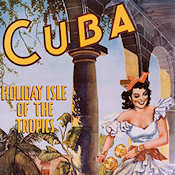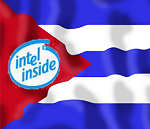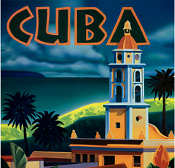 In my last post on the new Cuba regulations, I hadn’t yet seen the regulations published by the Bureau of Industry and Security (“BIS”) in the Federal Register on September 8 but had only seen press reports about their supposed contents. Both BIS and the Office of Foreign Assets Control (“OFAC”) issued regulations to implement the White House’s relaxation of parts of the embargo as announced in April of this year. Both agencies needed to issue regulations because OFAC regulates payments and provision of services to Cuba while BIS regulates exports of goods to Cuba.
In my last post on the new Cuba regulations, I hadn’t yet seen the regulations published by the Bureau of Industry and Security (“BIS”) in the Federal Register on September 8 but had only seen press reports about their supposed contents. Both BIS and the Office of Foreign Assets Control (“OFAC”) issued regulations to implement the White House’s relaxation of parts of the embargo as announced in April of this year. Both agencies needed to issue regulations because OFAC regulates payments and provision of services to Cuba while BIS regulates exports of goods to Cuba.
The new BIS regulations amend existing License Exception GFT which covers gift parcels and create a new license exception CCD which covers exports of certain consumer communications devices to Cuba. Although both license exceptions expand unlicensed exports to Cuba, they differ in significant ways.
Prior to the amendments, license exception GFT permitted individuals to send gift packages to members of their immediate family (excluding designated officials of the Cuban government and the Communist Party) of food, medicine, medical devices, and certain mobile phones. Packages were limited in value to $400 for all items other than food As amended, license exception GFT now covers gift parcels with a value up to $800 for all items other than food. The recipients of these packages no longer need to be immediate family members of the sender but can be anyone in Cuba (other than Cuban government and party officials). And the items in the package can now include clothing, personal hygiene items, veterinary items, fishing equipment and soap-making equipment. Significantly the packages can now also include items normally sent as gifts between individuals.
The new license exception CCD covers consumer communication devices and specifically lists, among other things, computers and peripherals, mobile phones, storage media, audio and video players and recorders, digital cameras and batteries and chargers for these devices. Although there are some overlaps between license exceptions GFT and CCD, there are some significant differences. For example, in terms of overlap, many of the items listed as eligible for exception CCD might also qualify under GFT as items normally sent as gifts between individuals.
Even if a computer might be exchanged as a gift, three computers would not normally be such a gift, meaning that multiple computers would not be eligble under exception GFT but would be eligible under exception CCD. Additionally, license exception CCD can cover exports from groups and companies, whereas exception GFT only covers exports by individuals. Finally, there is no limitation on the value of items sent under exception CCD. Nor is there a frequency limitation under exception CCD as opposed to the one parcel per month limitation under exception GFT. In essence, the only significant restriction under exception CCD, at least for the specific consumer communications devices enumerated, is that they can’t be sent to Cuban government or Communist Party officials.

 Posted by
Posted by  Category:
Category: 

 An
An  A
A  The Office of Foreign Assets Control (“OFAC”) released last Friday its
The Office of Foreign Assets Control (“OFAC”) released last Friday its  Zachary Sanders, a Brooklyn attorney,
Zachary Sanders, a Brooklyn attorney, 

